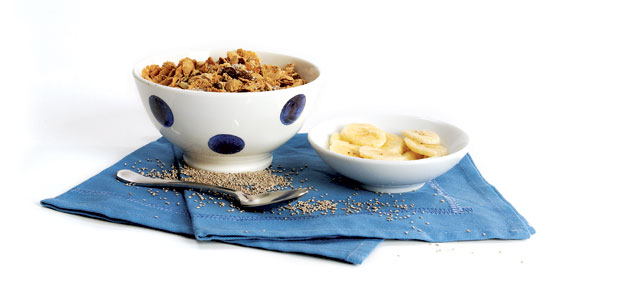Advertisement
The Little Seed That Could
A nutritional superstar

Have you heard the buzz about white chia? These seeds originate from the chia plant–yes, the same plant you can grow furry pets from.
What an interesting history these seeds carry! Hundreds of years ago chia was the staple food and important cultural and spiritual part of the Aztec civilization in Mexico. These seeds were known as “running food,” as they provided an exponential amount of energy and power that allowed messengers to run all day on just a handful.
Chia Runs Again
Five hundred years later, these seeds have re-emerged. Salvia hispanica L. alba, sometimes referred to as salba, holds high amounts of omega-3 and fibre–higher than many other foods.
Salvia hispanica L. seeds hold 3.05 g (3,050 mg) of omega-3 for every 2 Tbsp (15 g) serving and have an excellent balance of omega-3 to omega-6 for physiological needs. These seeds can absorb more than 14 times their weight in water, slowing down the digestion process, which, in turn, slows the release of glucose into the bloodstream. This helps stabilize blood sugar levels that can reduce food cravings and improve mood. The slowed digestion also makes one feel fuller longer, assisting in weight loss and maintenance.
Research Shows Value
A study designed to look at how Salvia hispanica L. alba seeds could affect cardiovascular risk factors in those with diabetes enrolled 20 study subjects who ate bread made with either 37 g of these seeds or wheat bran for 12 weeks each. The researchers looked at systolic and diastolic blood pressure, as well as C-reactive protein (an inflammatory marker).
They found the seed group versus the control group (wheat bran) had a reduction in
- systolic blood pressure by 20 percent
- diastolic blood pressure by 7 percent
- C-reactive protein by 40 percent
Dr. Vladimir Vuksan, the researcher in charge of the study published in the Diabetes Care Journal (August 2007), commented, “The only other major studies showing a reduction in C-reactive protein have been with statin drugs.”
White chia seeds have re-emerged as an important food staple, packed with fibre, omega-3, and a sack full of additional nutrients.




